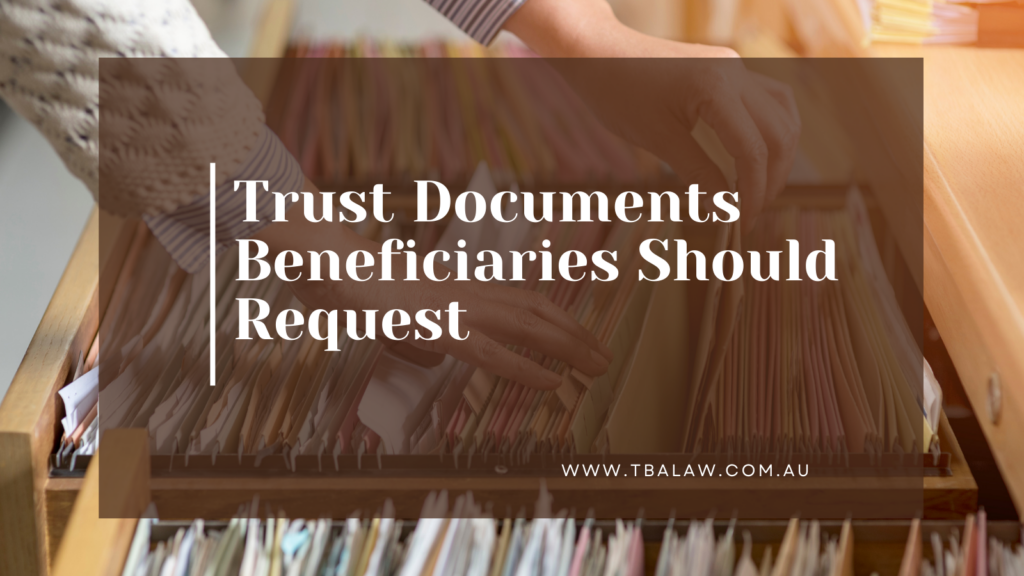Trust Documents Beneficiaries Should Request
by Ivy Casquejo
To begin, it is better for us to understand the concept of trust. A trust exists when the owner of a legal or equitable interest in property is bound by an obligation, recognised by and enforced in equity, to hold that interest for the benefit of others, or for some object or purpose permitted by law.1 Trust is a form of estate management in a way of splitting the management of the assets from the beneficiary. Basically, a trust exists when someone (trustee) holds property for the benefit of someone else (beneficiary).
In large measure, the rights and powers of beneficiaries are correlatives of the duties and liabilities of trustees. A trustee owes fiduciary obligations to the beneficiaries of the trust. One of the duties of the Trustee is to become familiar with the terms of the trust. The obligation does not only require attention on the details of the document which created the Trust but the trustee should also be aware of the other documents which relate to, or affect, the trust property.

The trustee has duty to make the trust fund profitable for the benefit of the beneficiaries in accordance with the document which creates the Trust. if the Trustee doesn’t act in this way, they may be liable to compensate any beneficiaries who suffer a loss as a result of their breach. As such, a trustee must keep proper account which the beneficiary is entitled to inspect the documents.
However, the beneficiary’s right to inspect does not have an equitable interest that gives rise to an inherent right to view trust documents, and that a trustee may therefore refuse a beneficiary’s request to inspect trust documents. Nonetheless, the court retains an inherent jurisdiction to oversee the correct administration of trusts and a beneficiary may seek that the Court compel the trustee to enable inspection of the documents.
So what does it mean? In simple terms, any right the beneficiaries have to inspect is not an unqualified right to see all documents. The right to inspect is limited to trust documents only, so the trustee is not obliged to disclose documents which are not property of the trust. As such, beneficiaries do not have the right to inspect documents in possession of trustees created for their own purposes, such as correspondence between co-trustees, and between trustees and beneficiaries, and agendas and minutes of trustee meetings. Also, the trustee is not obliged to allow inspection where an inspection of trust documents would tend to reveal the trustee’s reasons for reaching a decision. However, this does not mean that a beneficiary is completely unable to view the trust documents. The beneficiary may seek assistance from the court to determine to what extent information should be disclosed.
Although the court is yet to make a definite list of documents the beneficiary is entitled to ask to the trustee, the Court has provided guidance on the factors it will take into consideration when exercising the discretion to make an order of disclosure. The court will generally regard all circumstances of each case by taking consideration the scope of the requested documents, the documents that have been disclosed to the beneficiary, secrecy and confidentiality, as well as necessity of the disclosure. Then they will decide if the disclosure is necessary to proper administration of trust.
As the beneficiary, you have certain rights that should be upheld, however it can be difficult to understand exactly what these rights are.
If you need help, please reach out to us at 1300 043 103 or email us at admin@tbalaw.com.au.






Leave A Comment